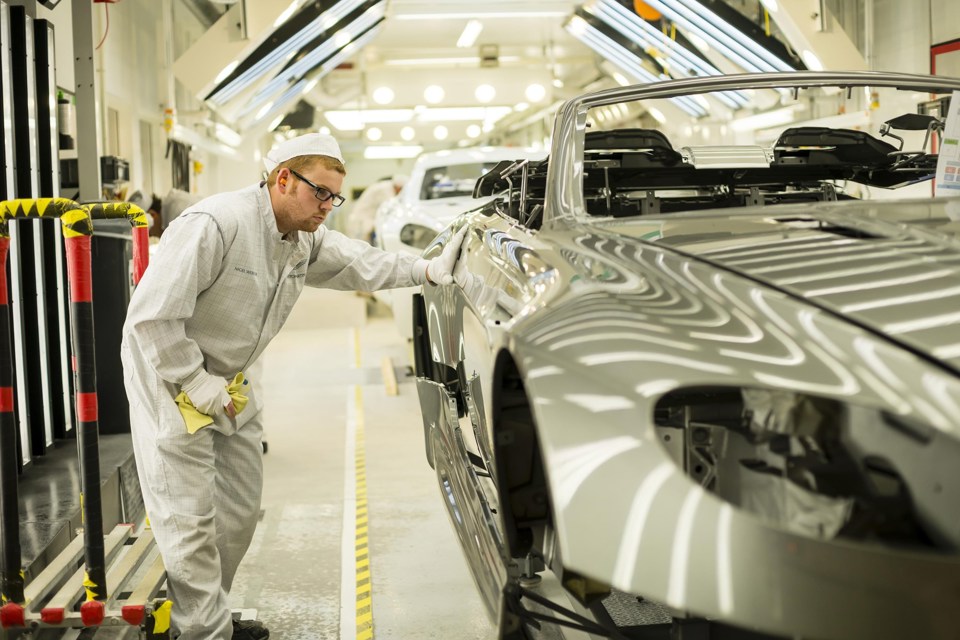The UK automotive industry turned over a record £71.6 billion last year – up 7.3% on 2014 – and now employs 814,000 people, with 17,000 new jobs created in 2015.
Vehicle production was up 5.2% to 1.7 million units, yet the Society of Motor Manufacturers and Traders (SMMT) said environmental impact had reduced, with waste to landfill down 24.2%. Average new car CO2 emissions were also down by a third since 2000, falling 2.6% in 2015 to 121.4g/km of CO2.
However, it stressed that access to the single market and EU-negotiated international trade deals, and the ability to recruit talent internationally and influence new standards, have all helped make the UK automotive industry one of the world’s most competitive.
The record turnover by automotive manufacturers represents a 7.3% increase on 2014, with the additional value generated for the UK economy standing at some £18.9bn – itself a 3.8% rise on the previous year. Investment in R&D by the industry also reached a record high of £2.5bn in 2015, which now represents some 12% of the country’s total R&D spend.
The figures, says the SMMT, are further evidence of the UK’s status as a global automotive leader, as production and sales of UK-built vehicles continue to grow both at home and abroad.
Mike Hawes, SMMT chief executive, said: “UK Automotive has gone from strength to strength, and is now delivering record turnover, record productivity and more jobs. These strong results go hand in hand with a steadfast commitment to improving our environmental performance, which is clearly demonstrated through reductions in CO2, waste and water use.
“This success has been due to unrestricted access to the single market, input to EU legislation to safeguard the interests of UK Automotive, and the ability to recruit talent from abroad.
“Our growth depends on certainty and continued open and reciprocal access to the 100-plus markets with which the UK automotive industry so successfully trades. This is not just finished cars but components, technologies and the wider automotive value chain. Any risks and uncertainty to these fundamental benefits need to be addressed head on by UK Government.”
Meanwhile, with an estimated 5,000 vacancies across the industry currently unfilled due to a shortage of available skills, companies are investing heavily in developing the workforce of the future, says the SMMT.
Sustainability Report signatories alone reported an intake of 825 new apprentices in 2015, up from around 500 the previous year, while each employee across the sector received an average 2.9 days of training – a rise of 5.3%.
Today’s figures, it says, are the latest evidence of the UK automotive industry’s strong performance across all areas. Car manufacturing output is already up more than 10% so far in 2016, 2015 saw almost 1.6m cars made here – the highest volume in a decade – while demand for both cars and commercial vehicles in the UK reached record levels with 2,633,503 and 420,000 registrations respectively.
SMMT recently revealed that its supply chain members plan to invest £225m in new jobs, machinery and new product development in the next three years, underscoring the need for economic stability.
The UK’s vehicle service and repair sector was also revealed as one of the most competitive in Europe, with British motorists spending £21.1bn every year looking after their cars – 12% more than the global average – as they ensure their vehicles remain safe, efficient and in fine fettle.6
These developments, says the SMMT, mean the sector is well placed to meet increasingly stringent environmental targets, as well as take advantage of opportunities from emerging alternative fuel and connected and autonomous vehicle technologies.



















Login to comment
Comments
No comments have been made yet.